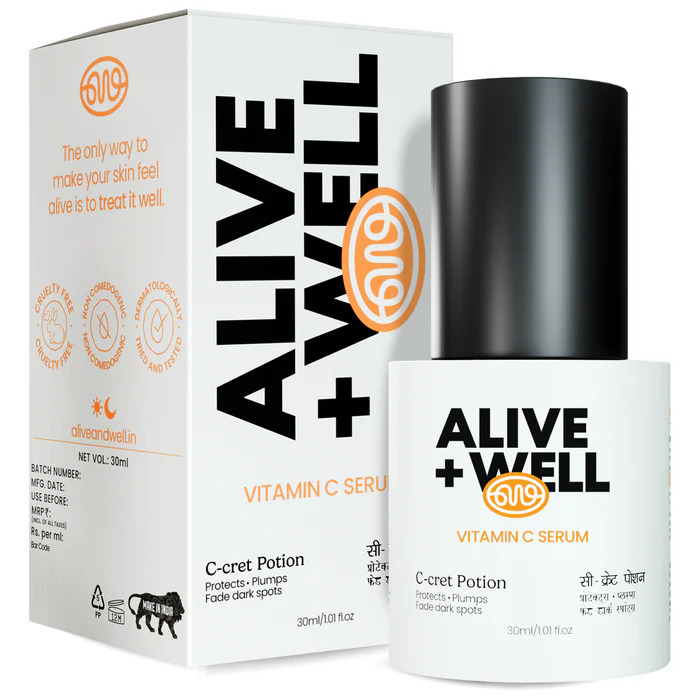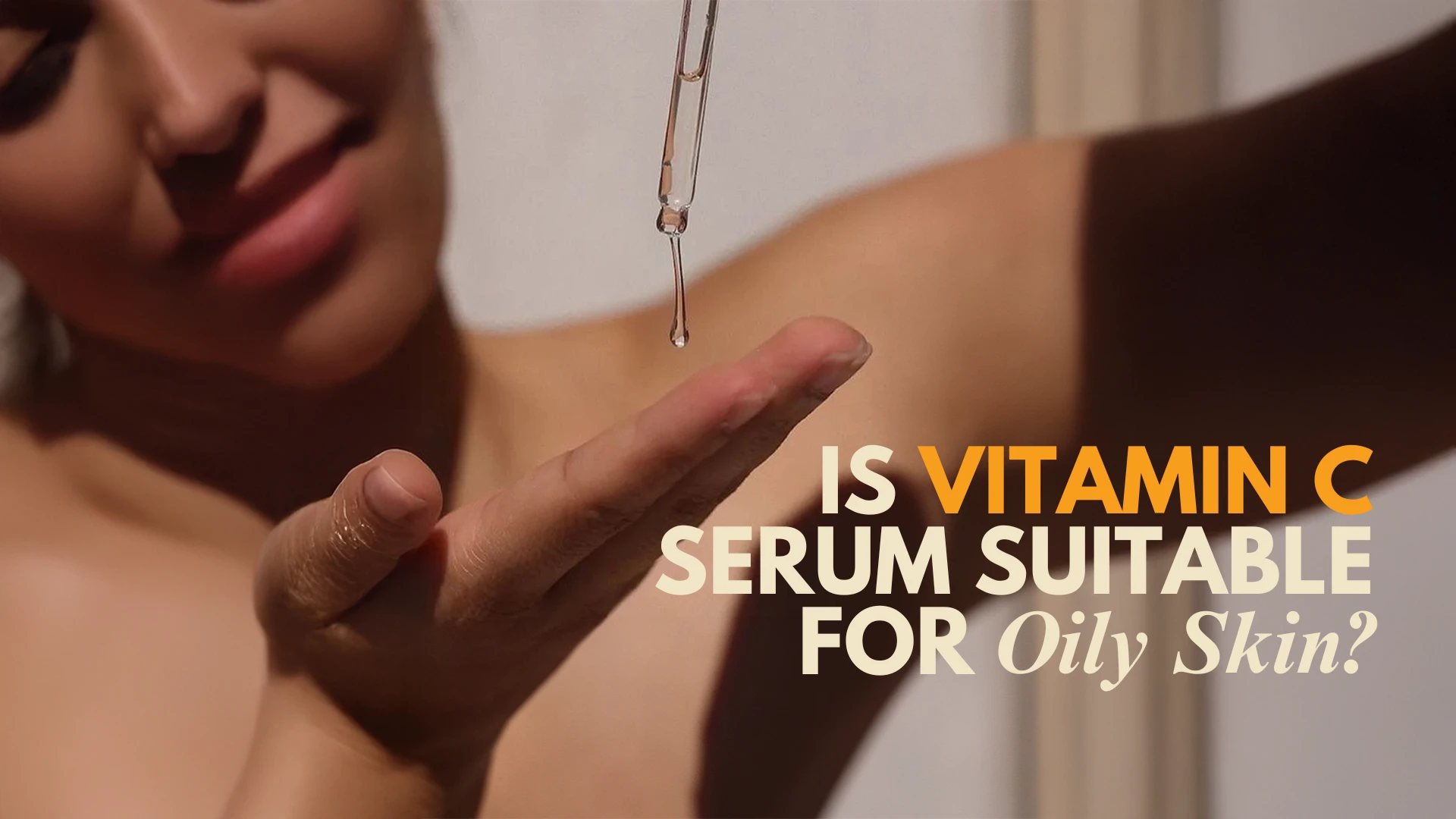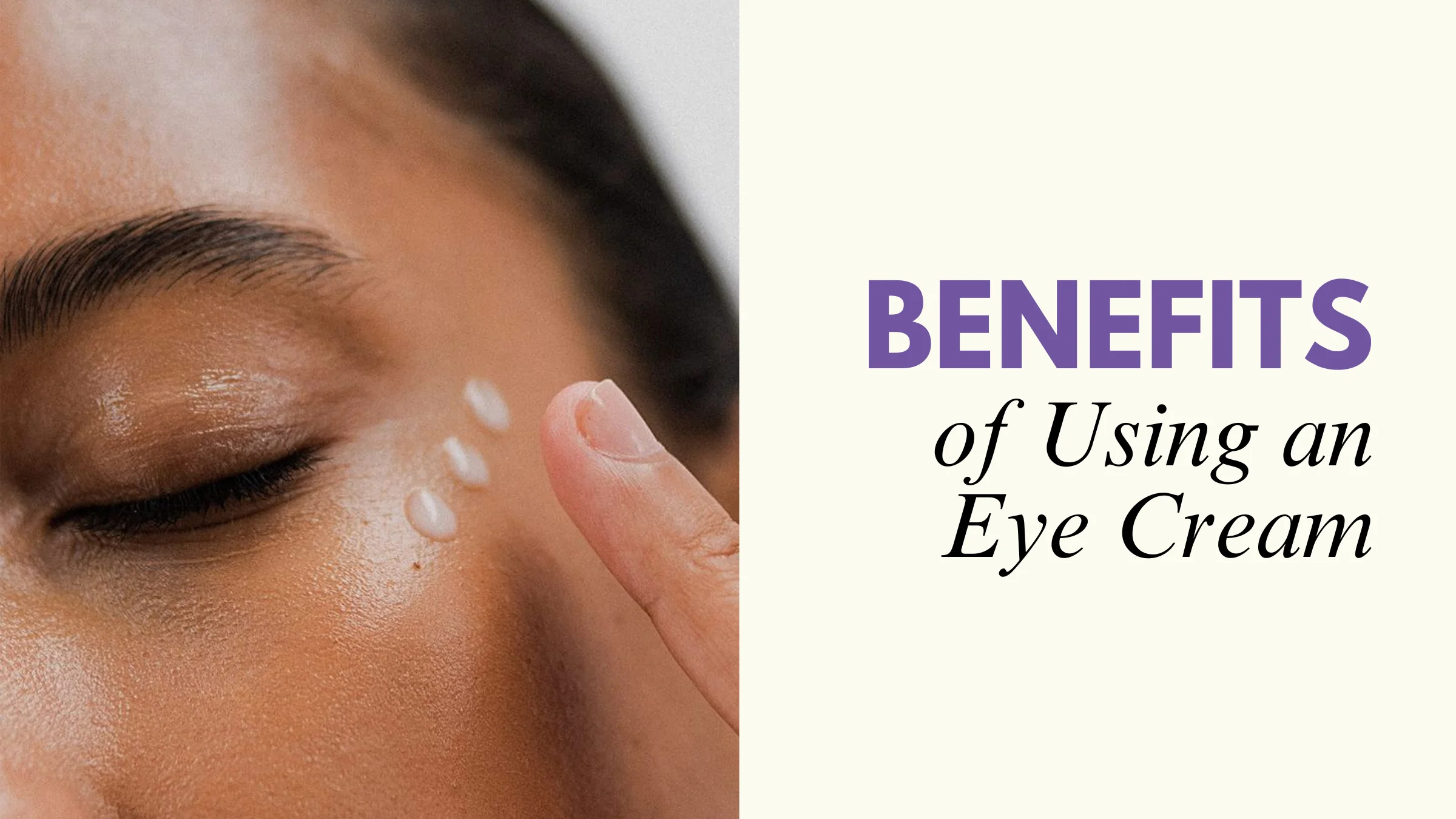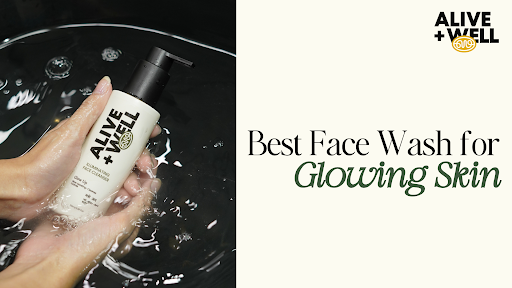Table of Contents
Vitamin c serum for oily skin
Vitamin C helps regulate sebum production, reducing excess oiliness and shine. It lightens dark spots and evens out skin tone, resulting in a glowing and more radiant complexion.
Vitamin c serum for face for oily skin
When it comes to skincare, few ingredients are as universally praised as Vitamin C. Known for its brightening properties and antioxidant power, it’s a go-to in many skincare routines. But for people with oily skin, there’s often hesitation—will it make the skin greasier? Will it clog pores or trigger breakouts? The short answer is: yes, Vitamin C serum can be suitable for oily skin, but it depends on a few important factors, including the formulation, concentration, and your overall skincare routine. Let’s explore what makes Vitamin C a friend (and occasionally a foe) for oily skin types.
Is Vitamin C suitable for Oily Skin?
Yes, Vitamin C is generally suitable for oily skin and can offer several benefits. It’s known for its antioxidant properties, which help protect the skin from environmental damage, and can also regulate sebum production, potentially reducing oiliness and preventing clogged pores. Additionally, Vitamin C can aid in managing acne and promoting a brighter, more radiant complexion.
How to use vitamin c for oily skin
Vitamin C is a powerful antioxidant that helps brighten the skin, fade dark spots, and protect against environmental damage. For oily skin types, it can be especially beneficial—if used correctly. Here’s how to incorporate it into your routine without triggering excess oil or breakouts.
1. Choose the Right Formula
Look for a lightweight, water-based, or gel-based Vitamin C serum that is labeled oil-free and non-comedogenic. Stick to concentrations between 10–15% to avoid irritation, and opt for stable forms like Sodium Ascorbyl Phosphate if you have acne-prone skin.
2. Use It in the Morning
Vitamin C works best during the day, helping defend your skin from pollution and UV damage. Apply it after cleansing and before moisturizing.
3. Cleanse First
Start with a gentle, oil-free cleanser to remove dirt, oil, and impurities. This preps your skin for maximum absorption of Vitamin C.
4. Apply 2–3 Drops of Serum
Pat 2–3 drops of serum onto your face and neck using clean fingertips. Let it absorb fully before moving to the next step.
5. Follow with a Lightweight Moisturizer
Even oily skin needs hydration. Use an oil-free moisturizer to lock in the Vitamin C and maintain skin balance.
6. Finish with Sunscreen
Always follow with a broad-spectrum SPF 30+. Vitamin C boosts sun protection but doesn’t replace sunscreen.
Final Tips:
- Start by using Vitamin C every other morning to build tolerance.
- Store the serum in a cool, dark place to prevent oxidation.
- Avoid combining with harsh actives like benzoyl peroxide or strong exfoliants unless your skin is used to it.
With consistent use, Vitamin C can help oily skin appear brighter, smoother, and more even-toned.

What does vitamin c do for oily skin
Vitamin C is a powerhouse antioxidant with multiple benefits—and it’s especially useful for oily skin. Here’s how it helps:
- Brightens Dull, Greasy-Looking Skin
Oily skin can often look shiny but still dull or uneven in tone. Vitamin C helps brighten the complexion by reducing pigmentation and giving the skin a more radiant, fresh appearance.
- Fades Acne Marks and Dark Spots
Post-acne dark spots (hyperpigmentation) are common in oily and acne-prone skin. Vitamin C helps fade these marks over time by blocking melanin production and speeding up skin cell turnover.
- Reduces Inflammation and Redness
Oily skin is often prone to breakouts, which can lead to inflammation. Vitamin C has anti-inflammatory properties that can help calm the skin and reduce redness.
- Fights Free Radical Damage
Oily skin can still suffer from environmental damage (sun, pollution). Vitamin C protects against this by neutralizing free radicals, helping prevent premature aging, clogged pores, and skin irritation.
- Improves Skin Texture and Minimizes Pores
Over time, Vitamin C supports collagen production, which can improve skin firmness and make pores appear smaller, a common concern with oily skin.
- Regulates Sebum (Oil) Production — Indirectly
While it doesn’t directly absorb oil like clay or salicylic acid, Vitamin C helps balance the skin, and less stressed skin can produce less oil over time.
Top Benefits of Vitamin C for Oily Skin
1. Controls Excess Sebum Production
- Vitamin C helps regulate sebaceous gland activity.
- It can subtly reduce the appearance of shine over time, balancing oil levels without over-drying.
2. Fights Acne and Breakouts
- Oily skin is more prone to clogged pores → acne.
- Vitamin C has anti-inflammatory and antioxidant properties that can:
- Reduce redness
- Help fade acne scars
- Calm active breakouts
- Reduce redness
3. Minimizes Pores
- By boosting collagen production, vitamin C improves skin texture.
- This can make enlarged pores (common with oily skin) appear smaller and tighter.
4. Brightens and Evens Skin Tone
- Vitamin C fades dark spots and hyperpigmentation caused by post-acne marks.
- Gives a more even, radiant complexion—especially useful if your oily skin looks dull or patchy.
5. Protects Against Pollution and UV Damage
- Oily skin can be more reactive to environmental stressors.
- Vitamin C neutralizes free radicals and boosts skin’s defense against pollution and sun damage (though it’s not a substitute for sunscreen!).
6. Non-Comedogenic
- Most vitamin C serums are lightweight and water-based—perfect for oily skin.
- Doesn’t clog pores, which is a big plus for acne-prone folks.
Vitamin c for oily skin
Vitamin C can be highly beneficial for oily skin, offering a range of advantages beyond just addressing oiliness. It helps regulate sebum production, reduces inflammation, provides antioxidant protection, and promotes collagen production, leading to brighter, healthier, and more even-toned skin.
Another benefit is its ability to minimize the appearance of large pores by improving skin texture and boosting collagen production. Vitamin C also brightens dull, oily skin and evens out skin tone by fading dark spots and hyperpigmentation. Additionally, it protects the skin from environmental damage caused by pollution and UV exposure, which oily skin can be more sensitive to.
Vitamin c serum oily skin
When choosing a Vitamin C product, it’s best to go for lightweight, non-comedogenic, and oil-free formulas like serums containing L-ascorbic acid between 10–20% concentration. Apply it in the morning before sunscreen for optimal results. Overall, Vitamin C is a great addition to any oily skincare routine, helping to balance oil levels while keeping the skin healthy, clear, and glowing.
FAQ
1 Are vitamin c serums good for oily skin
Vitamin C helps regulate sebum production, reducing excess oiliness and shine. It lightens dark spots and evens out skin tone, resulting in a glowing and more radiant complexion.
2 Can we use vitamin c for oily skin?
Yes, Vitamin C serum is generally safe and beneficial for oily skin. It helps regulate sebum production, reduces excess oiliness, and can even aid in managing acne. Additionally, its antioxidant properties protect against environmental damage.
3 How to use vitamin c for oily skin?
Apply the serum after cleansing and toning, but before moisturizing and applying sunscreen. Follow up your vitamin C serum with a moisturizer and sunscreen during the day. Be careful while pairing the serums with other activities.
4 How to apply vitamin c serum for oily skin?
To use vitamin C serum for oily skin effectively, cleanse and tone your skin, then apply the serum after cleansing and toning, but before moisturizing and sunscreen. Start with once a day, preferably in the morning, and gradually increase to twice daily if your skin tolerates it.
5 Which vitamin c serum for oily skin?
Alive and Well’s Throwing Shade SPF 50 PA++++ pairs perfectly with their lightweight, oil-free Vitamin C serum—brightens skin, controls excess oil, and layers smoothly under sunscreen.
6 Why is vitamin c good for oily skin?
Vitamin C serum can be beneficial for oily skin by helping to control sebum production, reduce the appearance of oiliness, and promote a more radiant complexion. It also offers antioxidant protection against environmental damage and free radicals, which can worsen oily skin issues.



